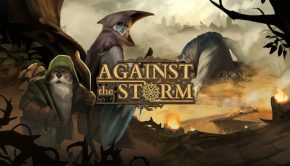Norton Report Finds Significant Number of Young Aussies are engaging in Cyber Stalking
Norton Special Report Finds Nearly Half of Young Australians Who Have Been in a Romantic Relationship Admit to ‘Stalking’ an Ex or Current Partner Online
NortonLifeLock (NASDAQ: NLOK), a global leader in consumer Cyber Safety, today unveiled new findings from a global study examining consumers’ online creeping behaviors, which is defined as following someone persistently online. The new study finds a striking generational difference among Australians’ cyber stalking tendencies in modern day relationships. One half (49%) of Gen Z and Millennials aged 18-39 who have been in a romantic relationship admit to ‘stalking’ an ex or current partner online by checking in on them without their knowledge or consent (vs. 24% of older adults). Most alarmingly, almost 2 in 5 Aussies aged 18-39 (38%) believe it is acceptable to cyberstalk if they are checking in on their partner’s physical or mental wellbeing.
Of these younger Australians who currently have a romantic partner, 30% believe their significant other is somewhat likely to download or has already downloaded apps known as creepware or stalkerware onto their device(s) to monitor activity such as text messages, phone calls, direct messages, emails and photos. This is a stark contract compared to only 21% of Australians aged 40 or older.
The new findings are published today as a special addendum to the 2021 Norton Cyber Safety Insights Report (NCSIR), NortonLifeLock’s flagship consumer survey that examines the impact of cybercrime and consumers’ online behaviors and concerns related to their online security, privacy and identity. The report was conducted in partnership with The Harris Poll and surveyed more than 10,000 people in ten countries[2] , including 1,005 adults in Australia, to assess consumers’ online habits and where they may be slipping into cyber-stalking.
“There seems to be a perception that cyberstalking is more ‘out of sight, out of mind,’ with 30% of young Australians saying they don’t care if they’re being stalked online by a current or former partner as long as it’s not in person,” remarked Mark Gorrie, Senior Director – APJ, NortonLifeLock.
“Whilst the uptake of downloading creepware apps to your partner’s devices is relatively low, the acceptance or belief that cyberstalking our current or ex-partners is relatively harmless, especially among younger Australians in concerning.”
The study’s results show 22% of Australians believe it is harmless to stalk a current or former partner online, with more younger Australians agreeing with this statement (29% vs 18% aged over 40).
“With recent depictions of online stalking and stalkerware technology featured in TV shows and other pop culture, it’s concerning to think that these dramatisations may be influencing dating standards in modern day romance,” says Mark Gorrie.
Younger Australians are twice as likely than those 40 or older to agree online stalking is okay if one or both partners have cheated or are suspected of cheating (36% vs. 17%) and admit they would be more likely to stalk a lover or an ex online if they knew they would not get caught (34% vs. 17%). Of note, very few Australians who have been in a romantic relationship acknowledge to using an app to track a partner’s physical activity (9%).
Additional findings from the 2021 Norton Cyber Safety Insights Report: Special Release – Online Creeping include:
- Texts, calls and photos the most common pieces of data tracked by current or former partners. The most common forms of stalking among those who have been in a romantic relationship are checking their partner’s phone to view text messages, phone calls, direct messages, emails or photos (16%), reviewed their search history on one of their devices (15%) or used their knowledge of their partner’s password to access their devices or online accounts (13%).
- Most common reason for checking on current of former partners is curiosity. Among those who have checked in on a current or former partner, curiosity (41%), wanting to know who their partner was with (35%), and wanting to make sure their partner was safe (35%) are the top factors that drove them to do it. Close to a quarter (23%) say they found out their partner was checking in on them, so they decided to do the same.
- Across the globe, cyber stalking isn’t unusual1. 34% of respondents who have been in a romantic relationship admit to checking on a former or current partner online without their knowledge or consent, including more than a third of Australians (34%) who confessed to partaking in this behavior.
If you think you may have stalkerware or creepware installed on your device, Mark Gorrie has shared some tips to help you how to find it, remove it and protect yourself moving forward.
- Often, to install stalkerware of creepware, access to your device is needed. To help protect yourself , ensure you have 2FA (2-Factor Authentication) or biometric login enabled so more than just a password is needed.
- In some cases, creepware can be installed remotely on your device through a link. Beware of files or programs from third party sources. Illegal downloads or freeware from untrusted sources can sometimes be used by hackers to infect your devices with malware.
- To help ensure you don’t have creepware or stalkware installed on your device, it is important to fully inspect all apps on your devices and review the permissions to functions such as location, calls & texts, camera & microphone and image gallery. If there isn’t a clear function to that app needing that permission, you should properly review and delete if necessary.
- Only download apps from trusted and verified sourced such as the Apple App store, Google Play or Windows store. Apps here undergo more rigorous testing to be approved. An extra level of security is installing security software that scans an app for any suspicious activity. Norton 360 includes mobile app scanning to help give peace of mind for every app download.
- Following these steps will help to reduce the risk to your privacy and data from unknown or anonymous actors. For more information visit www.au.norton.com.
Cyber stalking is a critical Cyber Safety issue, and NortonLifeLock firmly stands against this abusive, invasive behavior. In 2019, NortonLifeLock became a founding member of the Coalition Against Stalkerware, joining over 30 organizations from technology providers to nonprofits serving domestic violence victims to pool tools and resources in the fight against this invasive, dangerous technology.
Together with the Coalition, NortonLifeLock is actively working towards goals like improving detection and mitigation of stalkerware, developing best practices for ethical software development, and increasing technical capacity of survivors and advocacy organizations.







